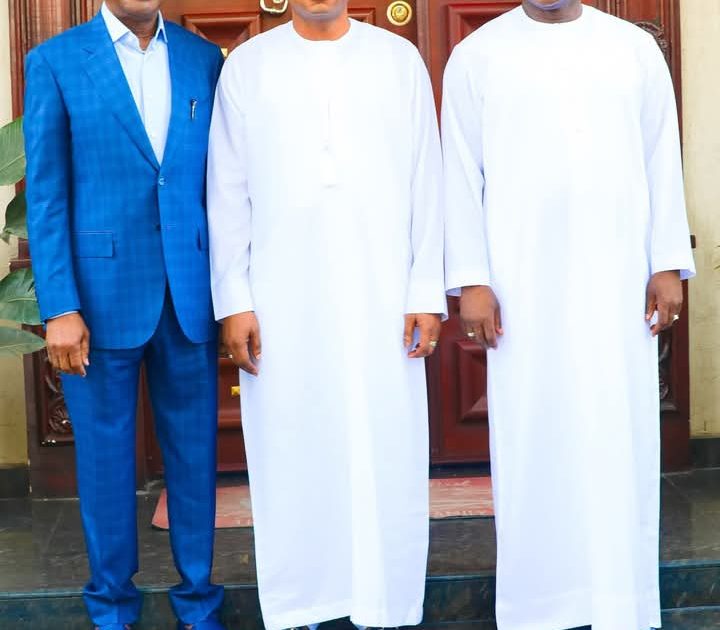In a significant political development, Kogi State Governor Yahaya Bello and the All Progressives Congress (APC) governorship candidate for the upcoming election, Usman Ododo, paid a courtesy visit to the Federal Capital Territory (FCT) Minister, Nyesom Wike, in Abuja. The meeting, captured in a series of photographs, highlights the intricate web of political alliances and maneuvering characteristic of the Nigerian political landscape, especially in the lead-up to crucial elections. While the specific details of the discussions remain undisclosed, the visit carries notable implications and opens up several avenues for interpretation and analysis.
The meeting’s timing, just weeks before the Kogi governorship election, suggests a strategic move by Bello and Ododo to solidify support and potentially gain Wike’s endorsement. Wike, a prominent figure within the Peoples Democratic Party (PDP), has a history of outspokenness and a demonstrated ability to mobilize political resources. His influence extends beyond party lines, making him a valuable ally for any candidate seeking electoral success. For Bello, securing Wike’s backing could be instrumental in ensuring a smooth transition of power within the APC and consolidating his own political standing ahead of future national elections. For Ododo, the association with Wike could lend credibility to his campaign and appeal to voters beyond the traditional APC base.
The visit also underscores the complex relationship between the APC and PDP in Nigeria. While the two parties are ostensibly rivals, instances of cross-party collaboration are not uncommon, often motivated by personal relationships, strategic alliances, and regional political dynamics. Wike’s willingness to meet with APC representatives reflects the fluidity of these political affiliations and the potential for shifting loyalties, particularly in the context of gubernatorial elections where local factors often outweigh national party politics. This encounter demonstrates the pragmatic approach often adopted by Nigerian politicians, prioritizing individual and regional interests over strict adherence to party lines. It also hints at the possibility of broader political realignments in the future.
The imagery of the meeting, disseminated through various media platforms, plays a crucial role in shaping public perception and conveying political messages. The photographs depict a seemingly cordial and productive interaction between the three political figures. The visuals suggest a sense of unity and collaboration, possibly intended to project an image of stability and cross-party cooperation. This carefully orchestrated display of camaraderie could be aimed at influencing voter sentiment and building confidence in both Ododo’s candidacy and the overall political process. The dissemination of these images serves as a form of political communication, bypassing traditional media channels and directly engaging with the electorate.
Beyond the immediate political context of the Kogi governorship election, this meeting raises broader questions about the future of Nigerian politics. It highlights the continued relevance of individual personalities and the importance of cultivating strategic alliances across party lines. The fluidity of political affiliations and the willingness of prominent figures like Wike to engage with opposing parties suggests a potential for greater political realignment and the emergence of new power blocs. This dynamic could significantly impact the trajectory of Nigerian politics in the coming years, potentially leading to shifts in party dominance and the formation of new political configurations.
Furthermore, the visit emphasizes the potential for political maneuvering and strategic positioning within the governing APC itself. Bello’s efforts to secure Wike’s support for his chosen successor could be interpreted as a move to consolidate his own power within the party and position himself for future leadership roles at the national level. By successfully transitioning power to a loyal successor and demonstrating an ability to build alliances across party lines, Bello enhances his political capital and strengthens his position within the APC hierarchy. This strategic maneuvering highlights the internal dynamics within the ruling party and the ongoing competition for influence and control. The outcome of the Kogi governorship election and the subsequent political developments will provide valuable insights into the evolving power dynamics within the APC and the broader Nigerian political landscape.


